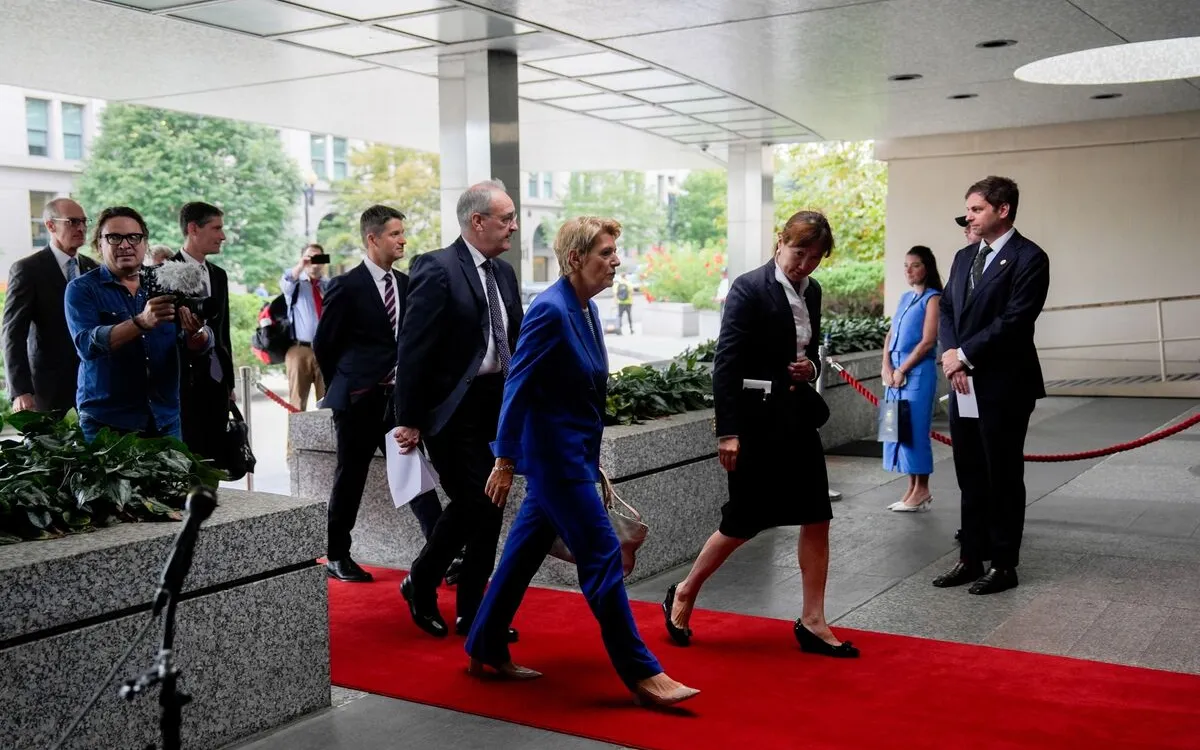
On July 4, while the United States was immersed in festivities celebrating Independence Day, Switzerland’s top ministers were also anticipating good news. They believed they had successfully negotiated a deal to avoid punitive tariffs imposed by former President Donald Trump. This agreement was seen as a significant diplomatic triumph for Switzerland, but the reality would soon prove to be much more complicated.
As the days turned into weeks, Swiss President Karin Keller-Sutter and her cabinet remained optimistic about their negotiations. However, just three and a half weeks later, a shocking announcement from Trump would change everything. When the former president unveiled his verdict on tariffs, Switzerland found itself facing the highest levies among developed nations.
The imposition of these steep tariffs not only surprised Swiss officials but also posed significant challenges for Swiss businesses. The added financial burden could hinder trade relations between Switzerland and the United States, impacting various sectors including export markets and economic collaborations.
In summary, what began as a hopeful negotiation turned into a daunting reality for Switzerland. The unexpected tariff announcement from Donald Trump demonstrated the unpredictable nature of international trade relations. As the Swiss government navigates this new landscape, the implications of these tariffs will be closely watched by both domestic and international stakeholders.